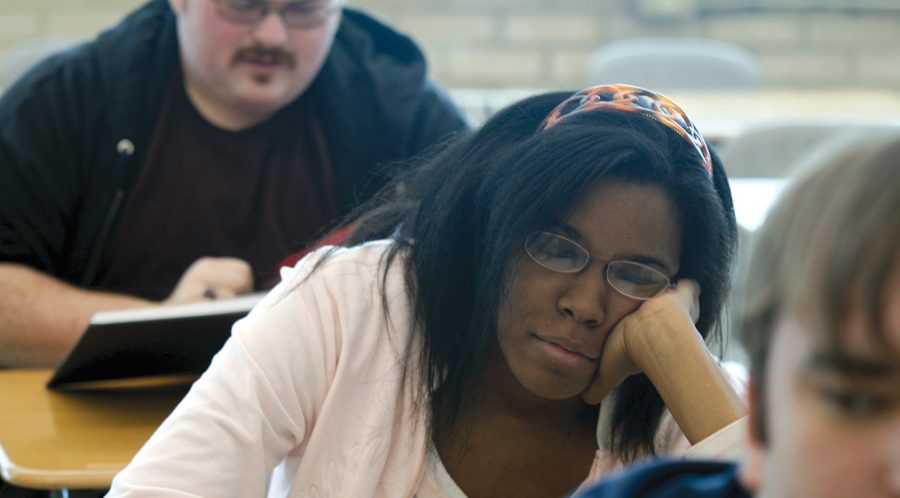The luxury of scheduling your own class times is available to all college students, but could scheduling earlier classes be harmful to your health and GPA?
If you’re not an early bird by nature, then it’s advisable to schedule later class times. Staying up late may seem like a profound choice to make as an independent adult, but is it worth sacrificing school work?
Sleep deprivation is directly related to lower GPAs due to its side effects, reports the National Sleep Foundation (NSF).
Lack of sleep generally causes vulnerable immune systems, decrease in daily function, school absences and depression. These are exactly the things college students are warned against concerning their success in school and life.
A study of 111 students at St. Lawrence University in New York showed students who frequently pulled all-nighters had lower grade point average than those students who slept regularly. It’s easy to procrastinate studying, skip a class or even drop a class, especially those at eight in the morning, when you are suffering from sleep deprivation.
NSF suggests the average person should get seven to nine hours of sleep every night; 10 or more hours of sleep a night is suggested for athletes.
Most students attribute their difficulty of sleep to stress. The NSF also suggests to monitor factors and make adjustments as needed: avoid caffeine, nicotine and alcohol in the evening hours and avoid excessive use of media before you go to sleep.
Also, try to avoid using your bed for studying so your brain will associate your bed only for sleep. Be as productive as possible during the daily hours and free your nighttime for sleeping. Worrying about your GPA is not worth losing sleep over.










